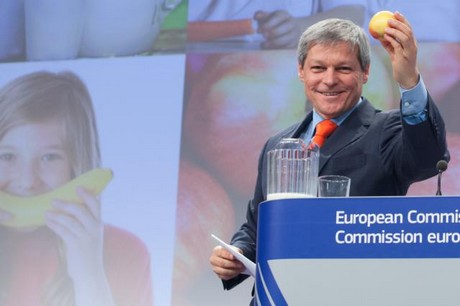 sters on 17 February 2014 discussed a draft regulation aimed at reforming the information and promotion policy of EU's agricultural products. The proposal seeks to develop and secure new markets in the EU and in non-EU countries, by raising consumer awareness of the quality of European agricultural products. To achieve this, it aims to create new promotional tools and concentrate EU action on priority products and markets.
sters on 17 February 2014 discussed a draft regulation aimed at reforming the information and promotion policy of EU's agricultural products. The proposal seeks to develop and secure new markets in the EU and in non-EU countries, by raising consumer awareness of the quality of European agricultural products. To achieve this, it aims to create new promotional tools and concentrate EU action on priority products and markets. In their discussion, ministers looked at ways of ensuring the efficient promotion of products on the internal market and broached the issue of a possible national co-funding of the policy.
Under the proposal, the policy's budget would grow from €61.5 million in 2013 to €200 million in 2020. The Council aims to reach an agreement with the European Parliament before the next European elections scheduled for May 2014.
EU agri-food sector
Within European manufacturing, the agri-food sector is the biggest employer with 4.2 million jobs and a turnover of €954 billion. The EU can claim to be the world's number one importer and exporter of agri-food products. With its share of global exports and imports totalling 18% and 20% respectively, the EU competes with the United States for the leading position.
Ministers also heard a presentation by the European Commission of a proposal for merging and simplifying the two long-running school schemes, currently separate, that offer subsidised milk and fruit to European pupils. The "Eat well - feel good" initiative brings together the School Fruit Scheme and the School Milk Scheme to cut down on red tape and address shortcomings identified in the past.
By raising children's awareness of the benefits of a healthy diet and increasing the range of available produce, the initiative aims to change eating habits. Its objective is to counter the declining consumption of fruit, vegetable and milk and fight against obesity.
The new joint scheme, once agreed, will have a budget of €230 million per school year.





